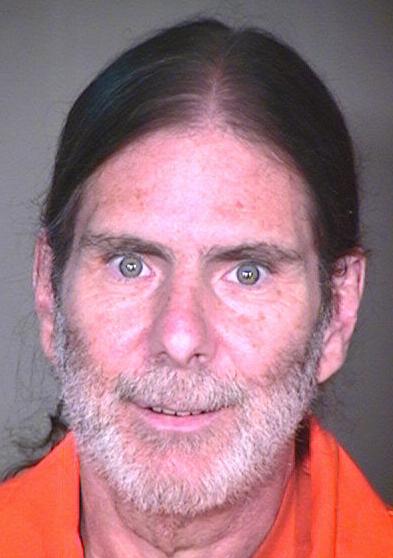PHOENIX — Attorney General Mark Brnovich is once again pressuring Gov. Doug Ducey to pave the way for executions in Arizona.
In a letter this week, Brnovich told the governor it is clear the federal government is able to get its hands on pentobarbital. What that means is the problem the state has had in the past in getting the drugs — and doing so legally — from a willing supplier no longer exists.
And Brnovich pointed out there are 20 individuals on “death row” who have exhausted their appeals.
But it is up to the Department of Corrections to actually order the drugs. And that agency is under the control of Ducey.
“It has been six years since Arizona carried out an execution,” Brnovich told the governor. In fact, he said, some of the crimes for which people have been convicted and are awaiting execution date back to the 1970s and 1980s, specifically citing the 1984 slaying of 8-year-old Vicki Lynne Hoskinson, who disappeared while riding her pink bicycle at Tucson’s De Anza Park. Frank Jarvis Atwood, who had previously been released on parole from California, was arrested and convicted.
“The time has come for Atwood and others to be held accountable,” Brnovich wrote.
Brnovich made a similar plea to Ducey a year ago when U.S. Attorney General William Barr announced that the federal government intended to resume executions after nearly two decades.
There was no response from Ducey at that point.
The federal government did finally carry out its first execution Tuesday, using lethal injection on a man convicted of murdering an Arkansas family in the 1990s.
On Wednesday, there was no specific response from Ducey about obtaining new execution drugs or asking for Brnovich’s help in getting them. Instead, gubernatorial press aide Patrick Ptak said the governor has received Brnovich’s letter and “will continue working with the Department of Corrections to ensure justice is served and that we follow the law.”
Part of the new push from Brnovich on Ducey is because the state has either won or settled lawsuits over the death penalty and the drugs that can be used.
Last year a federal appeals court concluded that Arizonans have no legal right to know where the state obtains drugs to execute inmates. That ruling, Brnovich said, makes it more likely that the state will find a supplier, many of which have been unwilling to sell their drugs for executions because they fear “harassment or retaliation by death penalty opponents.”
And just three weeks ago the state settled other claims, agreeing not to limit the ability of witnesses to hear the sounds of the execution.
Arizona has tried to get drugs used in executions in the past.
The state in 2015 ordered 1,000 vials of sodium thiopental, a muscle relaxant used in the execution process, from a supplier in India. That came after a domestic manufacturer refused to sell it for executions.
The decision to order the drugs came despite warnings by the FDA that buying the drug from India-based Harris Pharma would be illegal. That followed a 2012 decision by a federal judge, ruling in a lawsuit brought by inmates, requiring the federal agency to block importation of the drug as unapproved.
Customs and Border Protection seized the drugs at Sky Harbor Airport. And in 2017 the Food and Drug Administration refused to release them.
Arizona has not carried out an execution since it put Joseph Wood Jr. to death in 2014 in a procedure that took nearly two hours. He had been convicted of the 1989 death in Tucson of his girlfriend and her father.
Brnovich said it’s time to restart the process. But he needs Ducey’s cooperation.





